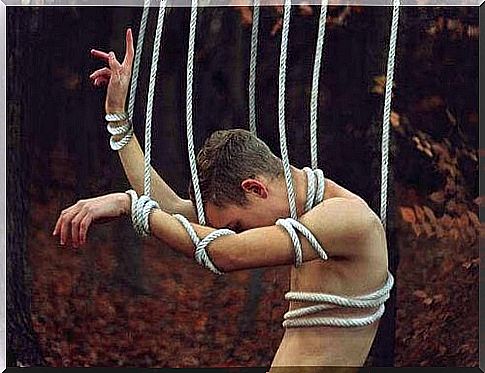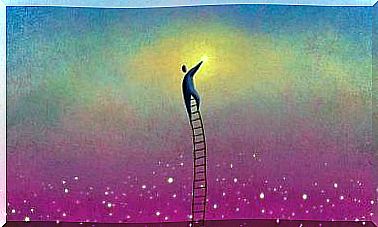3 Fallacies That Hinder Our Lives Without Our Realizing It

Fallaces are defined as statements or ideas that have the appearance of truth, but which in reality are not. Sometimes these are real constructions, and other times they turn into arguments that are raised collectively and that everyone accepts. Fallacies are not easy to detect because they are neither absurd reasoning nor trivial ideas; on the contrary, they follow a logic, even if it is not true.
A good example of fallacy is when a prejudice sets in. Suppose someone has been caught telling a lie. Afterwards, when he says something, others can’t believe him anymore because he is a liar. That is, from a particular situation, a general conclusion is drawn and applied at random. Although the past fact is well founded, the reasoning we arrive at is false.
Fallaces are not only installed in relationships with others, but they are also built to apply to ourselves. These erroneous reasoning end up torpedoing our well-being and misleading us. Three fallaces have become habitual and constitute an obstacle to feeling better. We will tell you about them later.
“An opinion, unconscious and founded by the fallacies of others, is the first step towards loneliness.”
-Anonymous-
Control Fallaces
There are two main fallaces related to the established control over circumstances and other people. The first could be defined as “fallace of impotence”. Reference is made here to all of those particular examples that we give to try to support the hypothesis that there is nothing we can do about a situation when this hypothesis is wrong.
This leads us to justify our total lack of action, claiming that everything is out of our control. This fallacy is found in all the circumstances in which you say “I cannot do it” and you attribute this helplessness to something outside you. An example: “I could not answer anything because this person would get angry”.

The other fallacy of control is quite the opposite: when you believe that everything and everyone depends on you. That you are responsible for everything and everyone. In this case, you try not to lose any detail, to interfere with everything, to have control over everything. And since, of course, you can’t do it, you feel guilty.
Spaces of justice
“Justice” is one of the most imprecise concepts that exist. What is fair and what is not depends on every culture and almost every person. There are few situations in which what might be called “universal justice” can be applied. There are always considerations which force this concept to be qualified.
However, there are some people who reserve the right to define what is right and what is not. The problem is that they only take into account their own perspective, their own needs, their own fears and desires, but not those of others or of those who are present in their context. It is for this reason that they keep repeating that everything that happens is unfair.
They think everyone should have a scale to weigh what they deserve and, of course, offer them. This is a fantasy that only ends up tormenting them, since no one is ever calculating all day long the prices and punishments to be given to those around them. In the world, not all good behavior is rewarded, and bad behavior is not always punished.

Fallaces of change
For those who handle fallacies of change, what takes precedence is a reasoning in which everything must change so that they can feel good. If they don’t feel comfortable with their job, then the working conditions should change. If they don’t have the money, then the economic system should change. If social relationships aren’t great, then others should change and be more considerate, more understanding, or different, either way.
They never think that maybe it is they who need to change. That it is perhaps their inability to adapt that turns the work into an unattractive space that is difficult to endure. Or that managing their finances is not allowing them to have enough money. Or that if they were more kind, sympathetic, and understanding, maybe they could get that in return from others.

There is a saying: “It’s easier to put on your shoes than to line the world”. However, for the victims of this type of fallacy, the opposite is true: the world must adapt to them, and not the other way around.









